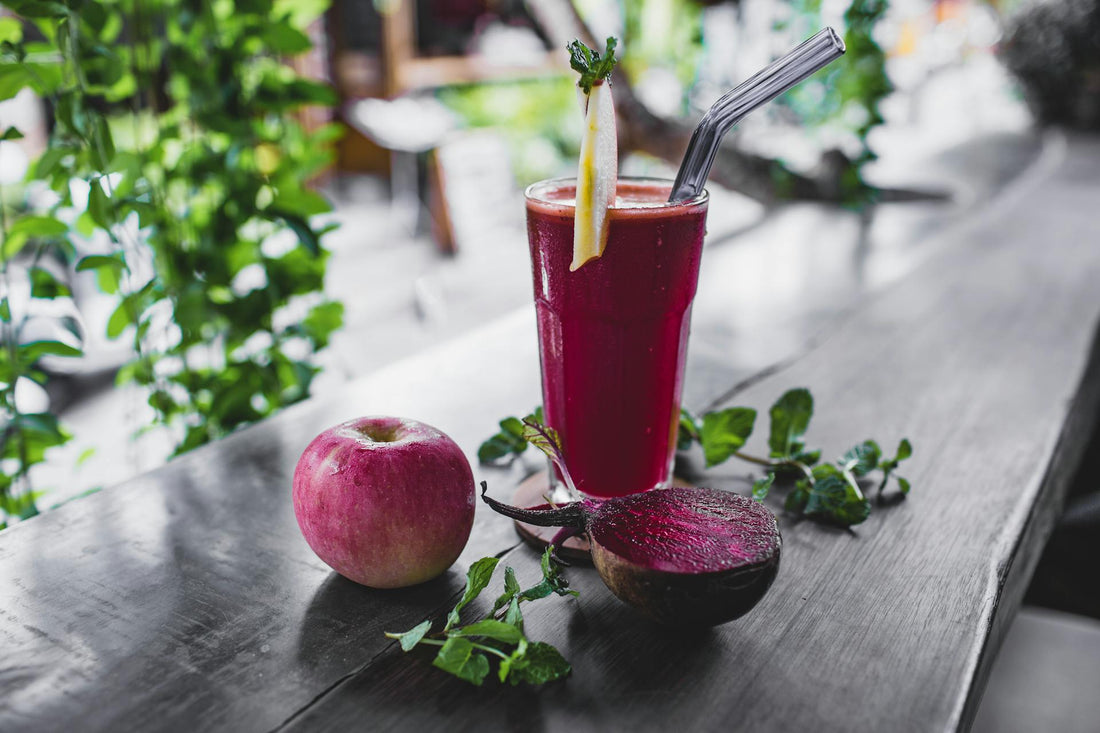Eating for Happiness: 7 Foods That Help With Depression
Have you ever found yourself reaching for a bag of chips or your favorite cookies when you're feeling stressed or down?
Like a reflex—stress hits, and we instinctively go for those comfort foods, which are often junk options. While these treats might give you a quick mood boost, they’re not exactly the healthiest choice.
Many foods that help with depression can boost your mood and provide benefits. You can add these foods for depression to your meals or eat them on their own. By choosing these options, you can improve your mood and get rid of your depression and anxiety without feeling guilty.
Food and mood are more closely related than you might think. The right foods can not only get your tastebuds dancing but also enhance your mood and overall well-being.
However, we're not here to discuss the common ones you've likely heard about a thousand times. No dark chocolates, fatty fish, or coffee in this list.
We are looking into rare and unknown things. You may probably not have heard of them before and missed out on benefiting from them.
In this article, we will look at seven foods that help with depression, backed by science. They are all low calorie snacks that aren't just healthy, they're tasty and good for you.
Let's get started!

Eating Comfort Foods is a Common Stress Response
1. Ashwagandha
The first on the list is Ashwagandha, an ancient medicinal herb, renowned for its powerful adaptogenic properties. Adaptogens are natural substances that help the body handle stress and stay balanced. They support the body's ability to adapt to stress, anxiety and depression.
This herb has compounds called withanolides that can lower cortisol levels, which is the body's main stress hormone. Reducing cortisol levels reduces anxiety and stress, promoting a more balanced mood.
Additionally, research has found that ashwagandha enhances brain function, and improves concentration. It also reduces symptoms of depression. Its ability to modulate neurotransmitter pathways, including serotonin and GABA, further supports its mood-boosting effects.
Incorporating ashwagandha into your diet is easy. It can be done through supplements, protein bars, teas, or powders and can greatly reduce stress and improve mental well-being.
You can also find healthy snacks with ashwagandha, like chocolate protein bars and Protein Puffs BBQ from 100 Calorie Snacks.
2. Goji Berries
Goji berries contain polysaccharides. These protect the brain and improve cognitive function and boost your mood.
These foods for depression have antioxidants that protect the brain from aging and mood disorders by reducing stress and inflammation. They include zeaxanthin, beta-carotene, and vitamin C.
Additionally, goji berries contain essential amino acids, including tryptophan, which is a precursor to serotonin.
You can enjoy these as a snack on their own, mix them into trail mixes, or sprinkle them on top of yogurt or oatmeal. You can also use goji berries to make teas, smoothies, or desserts.
3. Turmeric

Turmeric
Turmeric is a yellow spice commonly used in Indian cuisine. It contains curcumin, a powerful anti-inflammatory compound.
Curcumin boosts brain-derived neurotrophic factor (BDNF). BDNF is crucial for brain health, cognitive function, and mood regulation. It does this by stimulating neuron growth and connectivity.
Additionally, curcumin boosts the production of dopamine and serotonin. These neurotransmitters that play key roles in mood regulation and happiness. Its powerful antioxidant properties also help combat oxidative stress, which links to depression and anxiety.
Adding turmeric to your diet regularly can improve your mood and support brain health. You can add turmeric to dishes like curries, smoothies, or golden milk. This simple addition can have positive effects on your overall well-being.
4. Seaweed
Seaweed is a healthy marine plant often eaten in Asian cuisine, but not as much in Western diets. It has many health benefits.
Seaweed is full of vitamins, minerals, and antioxidants that can help improve mood and overall health.
One notable component of seaweed is its high iodine content. It is essential for thyroid function and hormone regulation. A healthy thyroid gland is crucial for maintaining energy levels, metabolism, and mood stability.
Seaweed contains omega-3 fatty acids such as EPA and DHA. These acids can improve mood and reduce symptoms of depression and anxiety. Omega-3 fatty acids are beneficial for mental health. Consuming seaweed can have a positive impact on mood and mental well-being.
These important fatty acids are vital for brain health and neurotransmitter production. They help in improving cognitive function and emotional well-being.
Incorporating seaweed into your diet can be as simple as adding it to soups, salads, or stir-fries. You can also enjoy seaweed snacks or incorporate dried seaweed flakes into homemade sushi rolls or wraps.
5. Beetroot
Beetroot has nitrates, antioxidants, and vitamins that boost mood and brain function.
Beetroot contains betaine. It acts as a natural antidepressant by increasing serotonin and dopamine levels in the brain. Beetroot has betaine, which is a natural antidepressant by boosting serotonin and dopamine levels in the brain. This can help improve mood.
Additionally, beetroot is rich in antioxidants like betalains and polyphenols. These antioxidants can reduce oxidative stress and inflammation in the brain, which are linked to mood disorders like depression and anxiety. This makes beetroot a beneficial food for depression and anxiety.
You can enjoy beetroot raw in salads, roasted as a side dish, or blended into smoothies. Beetroot juice is another convenient option. It can also be used in sandwiches and grated and mixed with yogurt for a healthy dip.
6. Saffron

Saffron, the 'Sunshine Spice'
Saffron, often called the "sunshine spice," comes from the threads of the Crocus sativus flower.
The spice has chemicals that can help with symptoms of depression by changing levels of brain chemicals like crocin and safranal. Saffron can boost serotonin levels and decrease dopamine reuptake, which helps regulate mood.
Saffron has mood-boosting and antioxidant properties, like crocetin, which protects the brain from stress and inflammation.
Adding saffron to your meals is easy. Just sprinkle a little in dishes like paella or risotto, or mix it into drinks like saffron tea or golden milk.
7. Chia Seeds
Tiny but mighty, chia seeds have gained popularity in recent years.
Chia seeds contain omega-3 fatty acids, like ALA, which play a crucial role in brain health and mood regulation.
Omega-3 fatty acids can reduce brain inflammation and support cognitive function.
Chia seeds are high in fiber, aiding digestion and balancing blood sugar to prevent energy dips and mood changes.
Chia seeds have minerals like magnesium, zinc, and selenium. These help make neurotransmitters and improve mood.
You can add chia seeds to smoothies, yogurt, oatmeal, or baked goods. Another way to use chia seeds is by making chia seed pudding. To make chia seed pudding, soak the seeds in plant-based milk and add sweeteners such as honey or maple syrup.
Conclusion
As we have seen, each of these foods that help with depression comes with a unique profile of nutrients and compounds. They bring more than just sustenance. They offer a path to better mental health through natural, wholesome means.
By adding these foods for depression into your diet, you can honor the profound connection between what we eat and how we feel.
So, next time you’re feeling the weight of stress or looking for a pick-me-up, remember to turn to this article. You'll be giving yourself a chance to feel happy, healthy and revitalized.
FAQs
What food helps with depression?
Foods like ashwagandha, goji berries, turmeric, etc. can help with depression. These foods have nutrients that improve mood and support brain health.
What food is good for depression?
Foods rich in omega-3 fatty acids, antioxidants, and adaptogens are good for depression.
What food causes depression?
Foods high in sugar, unhealthy fats, and processed ingredients can contribute to depression. Junk foods like sugary snacks, fast food, and processed meals can negatively affect mood and brain health.
How does fast food cause depression?
Fast food is often high in unhealthy fats, sugar, and salt, which can lead to poor nutrition and weight gain. This lack of essential nutrients and overall unhealthy diet can contribute to feelings of depression.



